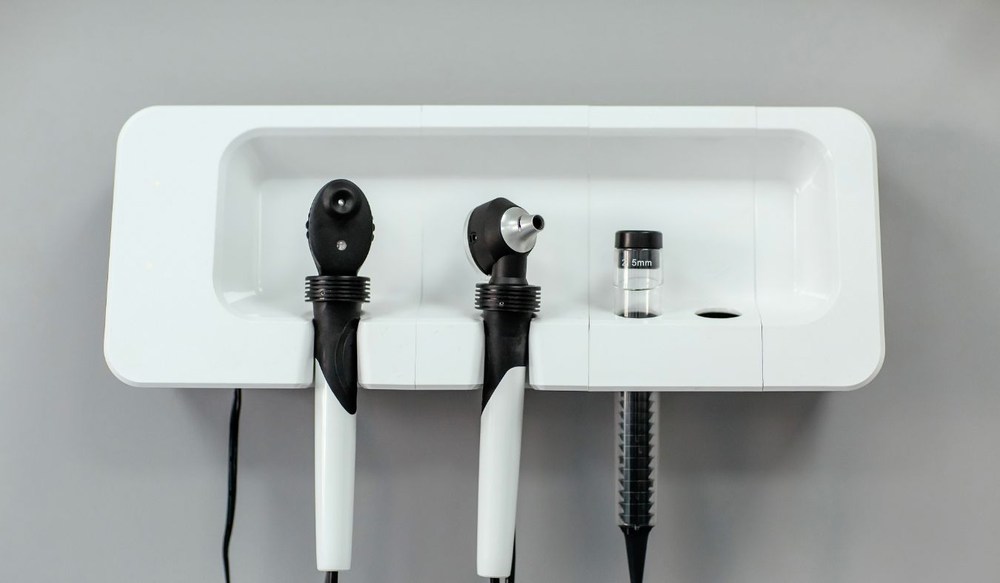The Role of Hearing Tests in Preventative Health Care
Most people schedule regular checkups for their teeth, eyes and overall

By: admin | April 30, 2024
Keeping your hearing health at its best requires regularity. Regular check-ins with your audiologist are an important part of this routine. These visits give us a chance to see how well your current treatment plan is working and make any needed changes to improve results. They also give us a chance to address any issues you may be having with your hearing aids, making sure they’re providing the most benefit possible. But what exactly happens during these follow-up visits? What should you expect? While it may seem a bit intimidating, it’s all designed with one purpose in mind: to improve your quality of life through better hearing.
Let’s talk about your first interaction with your specialist. This conversation is important as it sets the tone for your relationship and future interactions.
Your initial conversation with a specialist might feel a bit overwhelming. It’s important to remember that they are there to help you, not judge you. Start by sharing your experiences and concerns about your hearing. Be honest about any difficulties you’re facing, as this will help them understand your situation better and provide the most effective solutions.
A few tips can make this conversation easier and more productive. First, prepare beforehand by writing down any questions or concerns you have regarding your hearing health. This ensures that no important points are missed during the discussion. Secondly, be open and willing to share personal information related to your lifestyle and daily activities as this could influence your treatment plan. Lastly, always ask for clarification if something is not clear – understanding is key in managing your hearing health effectively!
After your hearing aid fitting, your audiologist continues to play an important role in your hearing health journey. They are there to support you, answer any questions and make necessary adjustments to ensure your comfort and satisfaction. This ongoing relationship with your audiologist is key in maximizing the benefits of your hearing aids.
Understanding the role of your audiologist in post-appointment visits can greatly improve the effectiveness of your treatment plan. Here’s how:
Being prepared is key when it comes to your follow-up appointments with your audiologist. A little planning can go a long way in ensuring that these visits are productive and beneficial for you. Always bring your hearing aids, even if they are not working as expected or have some issues. This allows the specialist to examine them closely and fix any problems you might be having.
Additionally, writing down any questions or concerns you have can be incredibly helpful. This ensures that no question goes unanswered during your appointment. From questions about maintenance and cleaning of your hearing aids to concerns about changes in your hearing abilities, don’t hesitate to write it all down. After all, these appointments are for you to get the most out of your t.
After your initial conversation with the specialist, it’s time to reflect on your personal experience and usage of hearing aids. This is an important part of your ongoing relationship with your audiologist and plays a crucial role in optimizing your treatment plan.
Assessing your experience with hearing aids involves more than just determining if they’re working correctly. It’s about understanding how they impact your daily life, how comfortable you are using them and any difficulties you may be having. This assessment provides valuable feedback for your specialist, enabling them to make necessary adjustments or recommend different strategies for better results.
In addition to assessing the technical performance of your hearing aids, it’s also important to evaluate their practical usage in various situations. For example, do you find certain environments too noisy or overwhelming? Are there specific scenarios where you struggle to hear clearly despite wearing your aids? Sharing these experiences with your specialist can help them fine-tune the settings on your devices or suggest alternative solutions. Remember, this is a collaborative process aimed at improving not only your hearing but also enhancing the quality of life.
Understanding how well your hearing devices are working is a critical step in managing your hearing health. This involves more than just checking if the devices are functioning correctly; it’s about evaluating their effectiveness in different situations and environments. This process, known as performance analysis, can help identify any issues or areas for improvement, ensuring you get the most out of your hearing aids.
Performance analysis offers several benefits. It can lead to adjustments that enhance the functionality of your hearing devices, making them more suited to your specific needs. Plus, understanding this process empowers you to take an active role in managing your hearing health and ensures that you’re making informed decisions about your treatment plan.
Let’s delve into the specifics of hearing aid adjustments. This is a critical aspect of your ongoing care and can greatly enhance your experience with hearing aids.
Hearing aid adjustments are a regular part of your follow-up visits to the hearing specialist. They are tailored to your specific needs and aim to optimize the performance of your hearing aids. Here’s what typically happens during these adjustments:
As we continue to discuss hearing aid adjustments, let’s highlight a key component: real-ear measurements. These are an important part of the adjustment process and can greatly contribute to the overall effectiveness of your hearing aids.
Real-ear measurements provide a more accurate and personalized approach to adjusting your hearing aids. They allow your audiologist to see how well your hearing aids are working in your ear, taking into account the unique shape and size of your ear canal. This ensures that the settings on your devices are tailored specifically for you, offering optimal performance and comfort. So, while it may seem like just another step in the process, remember that real-ear measurements play a significant role in enhancing your overall hearing experience.
Now, let’s focus on one of the most common concerns: addressing issues with your hearing devices. It’s natural to encounter some hiccups along the way, and that’s perfectly okay. The key lies in knowing how to handle these situations effectively.
Firstly, it’s important to understand that your hearing devices are sophisticated pieces of technology. Like any other gadget, they may require occasional troubleshooting or adjustments for optimal performance. So if you’re experiencing any difficulties or issues with your hearing aids, don’t panic! Reach out to your audiologist who can guide you through the process and provide practical solutions.
Remember that regular maintenance can prevent many common problems with hearing aids. This includes cleaning them properly and routinely checking for any visible damage or wear and tear. Your specialist can show you how to perform these tasks safely at home.
To get the most out of your post-appointment visits, there are a few key strategies to keep in mind. First, make sure you have a clear understanding of what was discussed during the appointment. This includes any changes made to your hearing aids, advice given by your specialist and steps for future care. If anything is unclear, don’t hesitate to ask for clarification. Your hearing health is a priority and every question you have is important.
A helpful checklist for maximizing benefits from post-appointment visits can include:
Let’s talk about why routine check-ups are so important. It’s not just about getting your hearing aids checked; it’s about taking a comprehensive approach to maintaining your hearing health.
Routine check-ups with your audiologist are more than just maintenance appointments. They’re an opportunity for ongoing conversation and fine-tuning that can significantly improve your daily experiences. During these appointments, you’ll have the chance to:
We hope this comprehensive guide has given you a clearer understanding of what to expect during your follow-up appointments at our hearing clinic. These visits are an important part of maintaining and improving your overall hearing health. Don’t hesitate to reach out if you have any questions or concerns about your treatment plan or if you’re having difficulties with your hearing aids.
At Audiology & Hearing Aid Solutions, our dedicated team of hearing specialists is here to provide the support and expertise needed for optimal results from each visit. We encourage you to schedule an appointment at one of our convenient locations by calling:

Most people schedule regular checkups for their teeth, eyes and overall
By: admin | October 20, 2025

Getting caught in the rain or sweating during a workout used to mean panic
By: admin | July 29, 2025

Most people know that aging and loud noise can affect hearing, but not
By: admin | June 20, 2025
